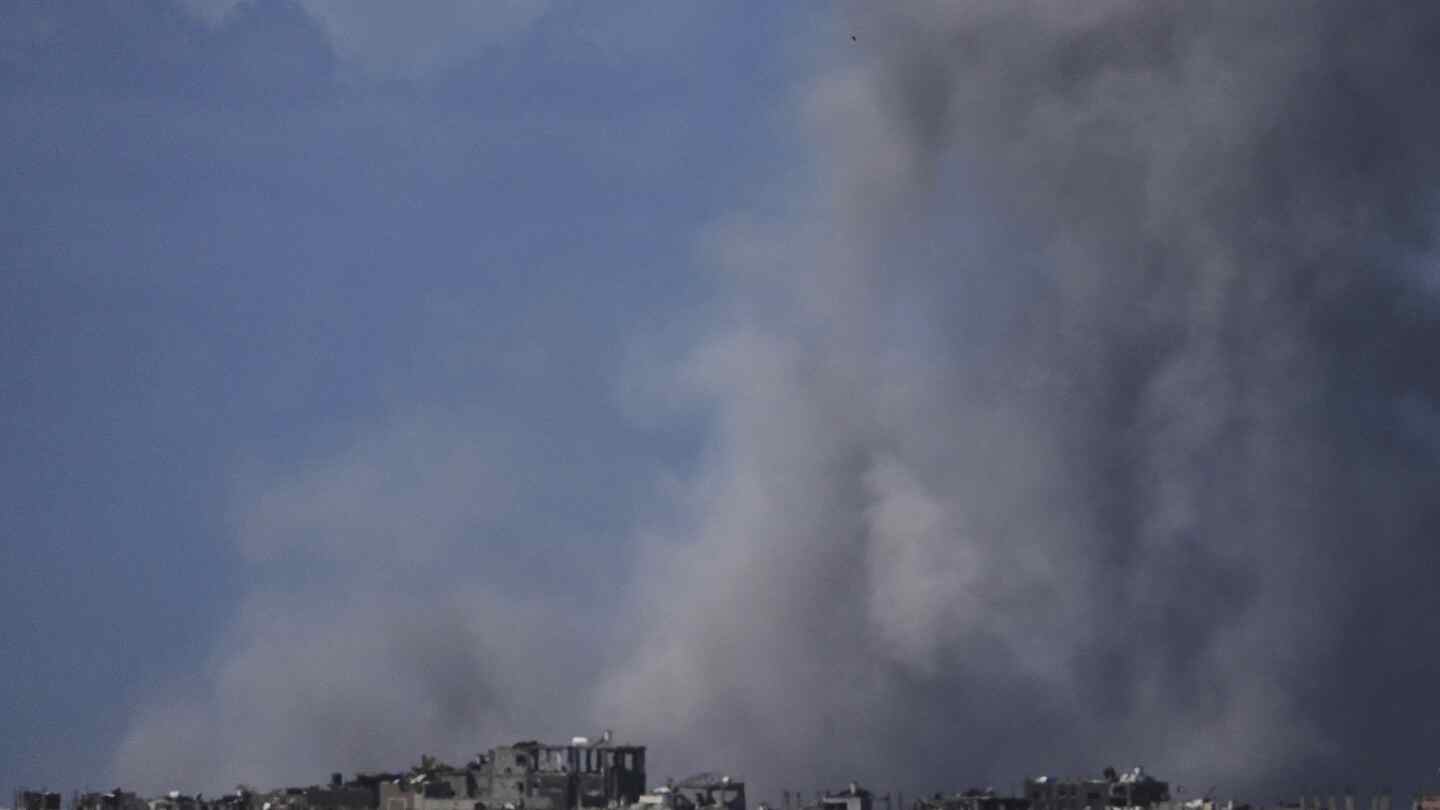Destruction in Gaza: The Human Cost of Israeli Airstrikes Revealed
Recent Israeli airstrikes on Gaza have resulted in significant casualties, with hospitals reporting at least 40 deaths. This escalating conflict raises urgent questions about the humanitarian impact on civilians in the region. As airstrikes continue to devastate neighborhoods, the stories of the affected families paint a harrowing picture of loss and despair. This article aims to shed light on the human cost of these airstrikes, the underlying causes of the conflict, and the urgent need for a humanitarian response.
The Current Situation in Gaza
As of the latest reports, airstrikes in Gaza have intensified, leaving destruction in their wake. The situation has become increasingly dire, with civilian areas being heavily targeted. Hospitals are overwhelmed, struggling to cope with the influx of wounded individuals. According to medical sources, the death toll continues to rise, and the humanitarian crisis deepens.
- Casualties: Medical facilities are reporting high numbers of injuries, particularly among women and children.
- Infrastructure Damage: Many homes, schools, and hospitals have been destroyed or severely damaged, complicating relief efforts.
- Displacement: Thousands of people have been forced to flee their homes, leading to overcrowded shelters with inadequate resources.
This escalation in violence raises alarm bells not just within Gaza, but across the globe. It highlights the urgent need for international attention and humanitarian aid.
Understanding the Context of the Conflict
The Israeli-Palestinian conflict is rooted in decades of political, territorial, and cultural disputes. The situation in Gaza is particularly complex, characterized by ongoing tensions between Israeli forces and Palestinian factions, including Hamas. Each side has its narratives and grievances, but the civilian population often bears the brunt of the violence.
- Historical Background: The roots of the conflict date back to the mid-20th century, with disputes over land and sovereignty.
- Blockades and Restrictions: Gaza has been under an Israeli blockade since 2007, severely limiting access to essential goods and services.
- Recurring Violence: The cycle of violence has persisted with periodic escalations, leading to numerous casualties and humanitarian crises.
In this context, the recent airstrikes represent a continuation of a long-standing pattern of violence that disproportionately affects the civilian population.
The Human Cost of Airstrikes
The consequences of airstrikes in Gaza are devastating. Each strike not only claims lives but also disrupts the fabric of daily life. Families are torn apart, and communities are left to grapple with the aftermath of trauma and loss. The psychological impact on survivors often lasts long after the physical wounds heal.
- Psychological Trauma: Many survivors experience PTSD, anxiety, and depression as a result of living through conflict.
- Childhood in Crisis: Children are particularly vulnerable, with many losing loved ones or witnessing horrific violence.
- Loss of Livelihoods: Destruction of businesses and infrastructure means that many families are left without a means to support themselves.
In addition to the immediate effects, the long-term implications of violence on health, education, and economic stability cannot be understated. The international community must recognize this human cost to advocate for effective solutions.
The Need for Humanitarian Assistance
The growing humanitarian crisis in Gaza necessitates immediate action. Organizations around the world are mobilizing to provide aid, but challenges abound. The blockade and ongoing conflict complicate relief efforts, making it difficult for organizations to deliver essential supplies.
- Access to Basic Needs: Food, clean water, medical supplies, and shelter are urgently needed.
- Health Services: Hospitals require support to treat the influx of casualties and provide ongoing care.
- Psychosocial Support: Mental health services are crucial to address the trauma experienced by civilians.
Humanitarian organizations call for unimpeded access to the region to ensure that aid can reach those who need it most. The need for protection of civilians and respect for international humanitarian law is paramount.
Voices from the Ground
Listening to the stories of those affected by the airstrikes provides invaluable insight into the human cost of this conflict. Survivors share their experiences, revealing the profound impact of violence on their lives.
One mother, who lost her two children in an airstrike, described her heartbreak: “Every day I wake up, I feel like a part of me is missing. I can’t understand why this is happening to us.” These personal narratives highlight the urgent need for empathy and understanding from the international community.
International Response and Future Prospects
The international response to the situation in Gaza has been mixed. While many governments and organizations have condemned the violence, concrete actions to alleviate the suffering of civilians remain limited. The ongoing cycle of retaliatory violence complicates the prospects for peace.
- Calls for Ceasefire: Many advocates urge for an immediate ceasefire to protect civilians and allow for humanitarian aid.
- Diplomatic Efforts: Renewed diplomatic initiatives are necessary to address the root causes of the conflict.
- Global Awareness: Raising awareness about the humanitarian crisis can mobilize public support for meaningful change.
As the situation evolves, it is essential for the international community to remain engaged and advocate for the rights and dignity of civilians in Gaza. The human cost of airstrikes must not be overlooked.
Conclusion
The destruction in Gaza and the human cost of Israeli airstrikes reveal the urgent need for a comprehensive response to the ongoing crisis. As casualties continue to rise, it is imperative that the international community prioritizes humanitarian efforts and seeks to address the underlying issues fueling the conflict. By amplifying the voices of those affected and advocating for peace, we can work toward a future where the people of Gaza can live free from violence and fear.
See more Update My News



